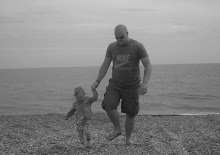In
1999,
Hašek averaged a career best 1.87
GAA and .937 save percentage, capturing him his third consecutive
Vezina, and fifth overall. He was also a finalist for the Hart and Pearson trophies. Though the Sabres did not have a stellar regular season and finished with the seventh seed in the
Eastern Conference, they defeated the Ottawa Senators,
Boston Bruins, and Toronto Maple Leafs in the playoffs en route to a best-of-seven Stanley Cup Final against the
Presidents' Trophy-winning
Dallas Stars. The Sabres eventually lost the series four games to two, with the decisive sixth game being one of the longest Stanley Cup playoff games in NHL history.
Hašek and Ed
Belfour made 50 and 53 saves, respectively, in a sudden-death
triple-overtime duel that only ended when
Brett Hull scored a controversial Cup-winning goal with his foot in the
goal crease.
During the
2007-08 season, he initially struggled and after his injury he was replaced by backup
Chris Osgood. When
Hašek recovered and got back into his stride, Detroit chose to alternate goaltenders in tandem instead of designating either as the backup. Detroit coach
Mike Babcock announced
Hašek to start in the
2008 playoffs. Through the first two games against the
Nashville Predators, Detroit were victorious the first two games but after a lackluster performance in the next two, Osgood was declared as the number one goaltender for the playoffs.
[38] Despite expressing disappointment at losing his starting position,
Hašek maintained his professionalism in practice and continued to support his teammates, with
Darren McCarty citing close relationship between
Hašek and Osgood.
[39] Eventually the Red Wings beat the
Pittsburgh Penguins in six games for the Stanley Cup.
Hašek is now contemplating retirement from the NHL, and is expected to be inducted into the
Hockey Hall of Fame in his first year of eligibility.
Stanley Cup Record:
Most Wins, Goaltender - Dominik
Hasek: 41
Lowest Goals-Against Average - Dominik
Hasek: 2.17
Most Shutouts - Dominik
Hasek: 5
A five-time winner of the
Vezina Trophy as Best Goaltender in the NHL,
Hasek also picked up two Hart Trophies as the league's Most Valuable Player. The sport's most prestigious award, the
Stanley Cup, eluded
Hasek until his final season in the NHL, when he helped the
Detroit Red Wings become NHL champions in 2002. Outside the NHL,
Hasek also claimed an Olympic Gold Medal as part of the Czech Republic's hockey team at the 1998
Nagano Games. Each of these accomplishments helped to maintain
Hasek's image as "The
Dominator," a nickname he earned for his commanding presence on the ice.
So, "The
Dominator" was so close to bringing The Stanley Cup to Buffalo, but the
Trophy avoided his grasp until 2002, when he was part of a remarkably tight and physical defensive unit and 2008 when he lost his starting position to Chris Osgood. His stats are excellent, but was he the reason Detroit lifted the Cup?






































